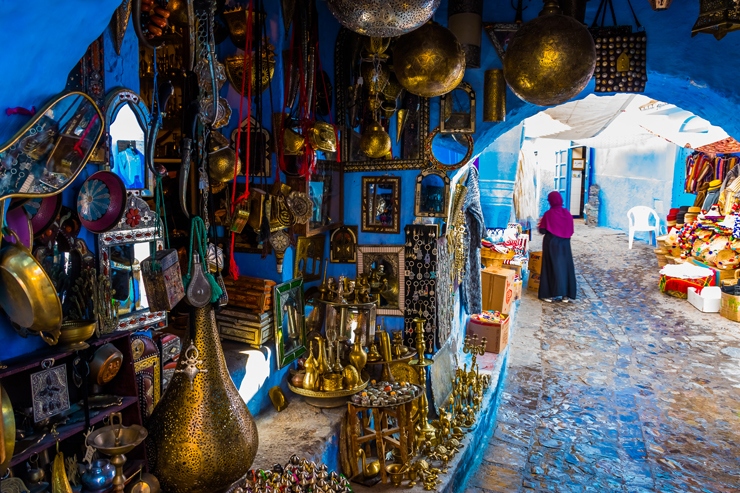Holiday souvenirs: What to watch out for
For many people, it's part of the vacation memory: the holiday souvenir. Jewellery from Portugal, carpets from Cyprus, or leather goods from Italy are just a few examples of popular holiday mementos. Vacation mood and (perceived) affordable prices further entice travelers to buy souvenirs.
Once they are back in the hotel or once hey arrive back home, many vacationers wonder whether they really need the souvenir. Or they may have an unpleasant surprise when the promised quality doesn't hold up. The European Consumer Centre Germany provides information on what rights vacationers have – or don't have.
What to do if the souvenir from vacation is defective?
When you shop in Europe, you have statutory warranty rights. This means that you are entitled to free replacement or repair EU-wide, regardless of whether you made the purchase in a physical store or online. The warranty period is two years throughout Europe, with a reversal of the burden of proof for at least one year. This means that if the holiday souvenir breaks within this first year, it is presumed to have been defective from the beginning. Some countries have more generous reversal of burden of proof periods, for example, France with two years.
In some vacation countries, there are so-called obligation to complain, which should be observed. The complaint must be made within a certain period after discovering the defect. For example, in Estonia, Latvia, and Malta, it's two months. In Poland, it's one year. Beware: if you complain too late, the seller can rely on the missed deadline and reject your complaint. It's different in Germany, France, Spain, Luxembourg, Portugal, Romania, and Bulgaria. There are no complaint deadlines in these countries, but even in these countries, you should still report the defect in a timely manner.
Do I have a right to withdraw?
With the right of withdrawal, you can reverse a purchase without giving a reason, for example, if you don't like the goods. However, you can only exercise your right of withdrawal if you purchased the goods online or outside of business premises. A stall at a weekly market, a jewelry store, or a carpet factory outlet do not fall under this category. If you bought the goods there, you can only ask the seller if they will take the goods back out of goodwill. You can also ask for a right of exchange before the purchase and get this assurance in writing.
It's different if the seller approaches you on the street, "lures" you into their store, and you buy the goods there. In this case, the right of withdrawal applies again. The same applies if a sales event takes place in a jewelry factory, and the trip there is organized. Coffee trips also fall under the right of withdrawal.
 © pszabo, AdobeStock
© pszabo, AdobeStock
What should I consider at customs?
Depending on whether souvenirs were purchased in an EU state or a non-EU state, there are different regulations that travelers should be aware of. Within the EU
Within the EU
The right to free movement enables every citizen of the European Union to move freely within the EU and to be treated like citizens of the respective Member State. This includes borderless travel with all the associated benefits. However, there may be restrictions on certain goods. After all, not everything that is offered to you in other countries may be brought with you without further ado. Certain goods are subject to authorisation in Germany or are completely prohibited. These include medicines, drugs and pyrotechnics. Cash in excess of 10,000 euros must be declared upon request.
Taxes are levied throughout the EU on luxury foodstuffs such as alcohol products, tobacco or beer and energy products (fuel and heating fuels), although there are differences in the tax rates. Coffee products and sweet drinks containing alcohol (alcopops) are only taxed nationally. Restrictions on the movement of these goods should be noted.
In principle, you can import goods for your personal use from any EU member state - with the exception of special territories - duty-free and without customs formalities into Germany. As sometimes personal needs are in quantities that exceed this, there are quantity restrictions that can be viewed on the customs website. Here you will also find information on which EU territories have special regulations. This is because these territories are part of the national territory but not part of the customs territory of the EU. They are therefore treated according to the regulations for returns from a non-EU state.
Return from a non-EU state
When entering Germany, you are not allowed to bring all goods with you without further ado. There may be import restrictions or prohibitions. Holiday souvenirs are duty-free under certain conditions, but should not exceed the travel allowance.
Restrictions apply, among other things, to medicines and narcotics, cash of 10,000 euros or more, pyrotechnics, animals, cultural goods, foodstuffs, diamonds, trademark and product piracy and weapons. Here, too, customs provides a detailed list of all goods and the associated restrictions and prohibitions.
Holiday souvenirs brought home are tax and duty free if certain allowances are respected and regulations are met.
Helpful tips for relaxed holiday shopping
Don't be tempted to buy something on a holiday whim. Think about whether you really need the goods.
If you are shopping at the market or in a shop: Get a business card with the full contact details of the trader or shopkeeper. This way you have the possibility to complain about defective goods even after your return to Germany.
Tour operators are not liable if, for example, you have bought overpriced jewellery as part of a package holiday.
Be careful when buying products whose price is too good to be true. The risk of getting a fake is high.
Once you have made a purchase at a market or shop, you are usually bound by the contract, whether or not you have already paid.

